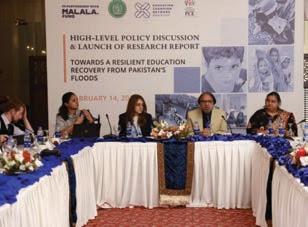
1 minute read
PARC team up with CABI, USDA, and USAID to reinforce commitment towards safeguarding health of plants, humans: Chairman
islamabad pr
Pakistan Agricultural Research Council in collaboration with Center for Agriculture and Bioscience International (CABI), with support from USDA and USAID, organized a Stakeholder Engagement Workshop under the program “Regulatory Harmonization in Pakistan for MRLs and Biopesticides” at National Agricultural Research Center, Islamabad. The focus of the event was the importance of Maximum Residues Limits (MRLs) for pesticides. Maximum residue limit(MRL) is the highest level of a pesticide residue that is legally tolerated in or on food when pesticides are applied as per Good Agricultural Practice.Various stakeholders involved in research commissioning and research implementation attended the workshop, including scientists throughoutNARC system, CDRI, ERP-IPEP, Director, AZRC Umerkotand extension workers from provincial departments of agriculture, private sector and from leading agriculture universities of Pakistan.
Advertisement
During the event, Dr. Ghulam Muhammad Ali, the Chairman of PARC, commended the collaborative efforts of CABI with the support of USAID and USDA in reducing the exposure of MRLs and aflatoxin in crucial commodities of Pakistan. He stressed the importance of eradicating such issues at the grassroots level to generate greater economic benefits for the country. The Chairman of PARC also reassured attendees that PARC would continue to work with CABI to implement initiatives that prioritize the health of both people and plants. Dr. Ali underlined the role of MRLs as a technical barrier to trade and emphasized that these initiatives would contribute to improved trade relations with neighboring countries. Dr. Babar E. Bajwa, Senior Regional Director- Asia at CABI, extended a warm welcome to all the participants attending the workshop. He highlighted that the CABI and PARC partnership aligns well with the contemporary approaches taken by developed.







